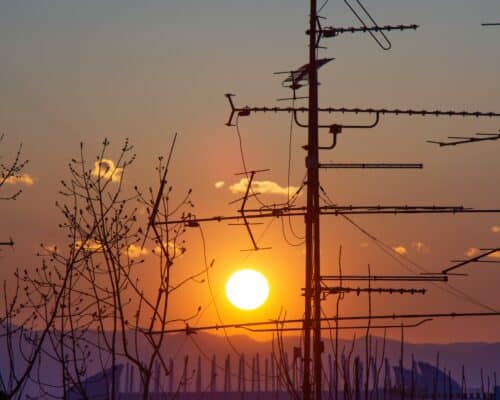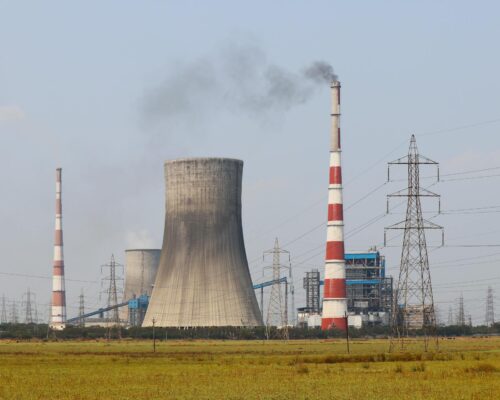Articles
Is Carbon Capture Viable? New IEEFA Report Says No
Carbon capture is one of the most controversial low-carbon technologies discussed today. Proponents see it as a way of reducing emissions from fossil fuel heavy industries, yet opponents view it as a way of avoiding the adoption of renewables.
Samsung Joins RE100: The Effect on South Korea’s Clean Energy Progress
Korean RE100 members have to take leadership by pushing policy-makers to expand renewable energy supply and lower prices. Samsung's involvement can be the decisive factor that urges the Korean leadership to make a change.
Rent-to-own Solar Panels for Home in Singapore
Singapore has lofty renewable energy and solar capacity targets. However, the country has limited available land and will need to harness residential structures to meet its goals.
Green Bonds: Sustainable Financing Tools or a Greenwashing Weapon?
In a bid to reduce greenwashing possibilities, the EU now requires increased transparency and strict reporting for sustainable bonds. However, the rest of the world is still dragging its feet, leaving the door open for greenwashing on both state and corporate levels.

National Oil Companies Could Derail Carbon Targets
Although they hold significant influence, national oil companies have been among the slowest movers in the global energy transition. While a few companies have set impressive targets to reduce emissions, oil and gas exploration continues at the same pace, and production is increasing. Will their actions ever match their promises?
Russian Oil Exports and Fossil Fuel Revenues Outstrip the Invasion Costs
Banning Russian fossil fuels is the single, most efficient sanction countries can impose. Yet, as CREA's latest report shows, many of them continue buying Russian coal, oil and gas through official and alternative channels. All of this when renewables are within an arm's reach.
MHI First Transition Bond Program – All You Need to Know
Instead of the innovative green financing mechanism they were supposed to be, transition bonds have become the perfect tool for greenwashing. MHI's first transition bonds program can either accelerate the company's net-zero efforts or further distance it from carbon neutrality. The key is in MHI's hands.
How To Improve Indoor Air Quality – 7 Effective Ways
There are a complex and broad array of air pollutants, which make indoor air pollution a challenging global issue to tackle. However, there are some actions we can each take to directly improve our immediate air quality, like increasing building ventilation. Additionally, increasing education on sources of air pollution will help make a societal change in the communities that most need it.
The Outlook for Electric Cooking in Asia
Many low-income households in developing Asia continue to use wood as the primary fuel for cooking. Despite the sufficient amount of electricity access, for most middle and high-income households across developed and developing Asian countries, gas and LPG remain the preferred choice. Governments have to stimulate the transition to electric cooking to help households ensure more affordable and cleaner cooking.
The Rise of Electric Cooking
Natural gas has several adverse side effects on our health and the environment when used for cooking. Electric cooking represents a significant improvement in both of these categories. However, gas cooking rates remain high, which needs to change. Understanding the advantages and disadvantages of electric cooking is crucial in facilitating the shift away from gas systems.

More Cities Are Banning Natural Gas In Homes: But Why?
Natural gas produces a range of pollutants associated with health issues and climate change. As a result, cities are starting to consider banning natural gas infrastructure in new buildings. So far, US cities are leading the charge, but there has been significant pushback from major natural gas companies.
Indoor Air Pollution – What a Household Can Do?
Indoor air pollution is a leading cause of death, yet it is relatively easy to limit some of the main contributors found in homes. The lack of education and access to safer energy infrastructure is one of the main roadblocks. It falls on governments and communities to facilitate local change.
The Transition to Clean Cooking: How to Replace Gas?
While gas has long been considered a clean cooking fuel, research shows that it can impact health. This, paired with the high gas prices, the global net-zero journey is making countries around the world look for alternatives. Induction and electric stoves can be the solution. And the renewable energy transition is starting to prove it.
Most Popular
Most Popular
Categories
-
9
-
34
-
126
-
4
-
17
-
45
-
52
-
11
-
10
-
15
-
24
-
6
-
6
-
268
-
198
-
17
-
24
-
1
-
1
-
23
-
38
-
43
-
87
-
18
-
85
-
41
-
17
-
10
-
42
-
46
-
86
-
289
-
21
-
44
-
36
-
10
-
41
-
36



